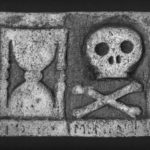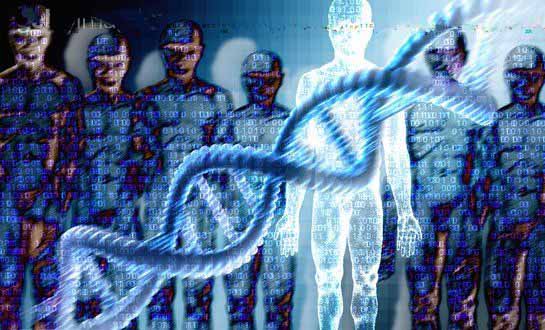p. 411
the sophism, makes it the basis of his system, and the ultimate secret of his mysteries.
I am not simply to prove that such is the grand object of the Conspiracy, and of the ultimate revolution which he is preparing with all his adepts. Were that my only task, I should cite the blessings which the hierophant of Illuminism pours out on those hordes that roam without laws or society, and the curses which he vents against those men who, fixing their abodes, name chiefs and constituted states. The very menaces of the teacher unfold the whole of the Conspiracy. “Yes, princes and nations shall disappear from off the face of the earth; yes, a time shall come when man shall acknowledge no other law but the great book of nature: This revolution shall be the work of the secret societies, and that is one of our grand mysteries. 5 This single passage of the code is sufficient to demonstrate both the object of the Conspiracy and the extent of the projects of the sect; but though the Conspiracy should be clearly proved, still that would be doing little for the public good. Instead of a terrible and formidable Sect, nations and chiefs of nations might mistake the Illuminees for a band of senseless madmen, plodding without means a chimerical Revolution; therefore little to be feared, and too despicable to deserve notice. Thus would wickedness find a cloak in its excesses; the Sect would prosecute its hellish plots more actively, more confidently, and more successfully, merely because their object was supposed impossible. Society would be dissolved; our laws, our religion, and our property, would be wrested from us, because we believed them proof against any attempt. Nations would tranquilly slumber on the brink of the precipice, and be plunged into destruction while they considered the fatal cause as the delusion of delirium, and smiled on the plots of Illuminism. And its founder foresaw this: for he says to his adepts, “Let the laughers laugh, let the scoffers scoff; he that compares the past with the present, will see that nature continues its course without the possibility of diverting it. Its progress is imperceptible to the man who is not formed to observe it; but it does not escape the attention of the Philosopher.” 6
Society then calls upon me to develop more than the existence, or even the extent of the plots of the Sect—I say, it calls on me loudly to proclaim the dangers which threaten us; yes, the evils which threaten all society must be clearly shown. A manner of proceeding and an artful cunning big with crime, which will speedily plunge nations into those disasters which they may believe chimerical, is to be clearly ascertained. I have to unfold the whole of a system, an entire code, in which each institute, each maxim, each regulation, is a new step towards a universal revolution which shall strike society a mortal blow. I am not then about to inform each citizen that his religion, his country, his property, that every society, people, or nation, are menaced; unfortunately that would be a task too easily performed. But I am bound to say, “In this horrible plot, such are the dangers which threaten your country, and such the perils that hang over your persons.” I must show extensive resources combined with consummate villainy, where you imagined that nothing existed but the delirium of modern Philosophism, destitute of means.
p. 412
Weishaupt, like yourselves, had foreseen numerous obstacles to his conspiracy; and it appears that he had even exaggerated them. That for which his most famous adepts seem to despise their countrymen, should be mentioned here as redounding to their honour. Weishaupt, surrounded by the faithful Bavarians, faithful to their God and to their country (rather speculating on the human heart from his books, than closely observing men in the common intercourse of life), was not aware of how very much Philosophism had forwarded his systems. 7 The generation which had attained the age of manhood appeared too much infected with the antiquated ideas on religion and government. But, unfortunately, facts soon undeceived him; and this error only served, by deferring his hopes, to turn his mind to farther precautions and meditations, which sooner or later were to render his success infallible. He would say to himself, he would say to his trusty brethren, “According to my views, I cannot employ men as they are; I must form them; each class of my Order must be a preparatory school for the next; and all this must necessarily be the work of time.” 8 But to accelerate the time he cast his eyes on that class of young men, which, just entering the world, easily fall a prey to error, because at that age they are under the influence of their passions. I shall hereafter show what it was that both shortened the time, and abridged their education, in presenting him with whole legions of adepts ready formed to his mysteries. It is first necessary, however, that the reader should be acquainted with the profundity of his system; because, had the French Revolution not taken place, that system would alone have sufficed to render it certain and infallible; for, could the French Revolution be done away at the present moment, and the ancient regimen be restored, this code would furnish Illuminism with all the means of effectuating one that should be still more disastrous. Let us then study it, let us dissipate the cloud in which it is enveloped. Reader, your own interest requires that you should follow our steps; and observe all the snares that have been laid for you; see with what art its disciples are beguiled, with what precaution it chooses, calls, and disposes its adepts. Its proceedings appear indeed to be slow, but they are nevertheless sure. It seems to exhaust all its art to acquire a single proselyte, but the same allurements attract whole legions. Its springs are secret, but the reader must know their power and with what constancy they move toward and direct the common ruin. He has seen the people agitated, animated, and even misled to ferocity; but he must also be informed how those adepts were created who fanaticised the people and rendered them ferocious.

Moe is the founder of GnosticWarrior.com. He is a father, husband, author, martial arts black belt, and an expert in Gnosticism, the occult, and esotericism.





